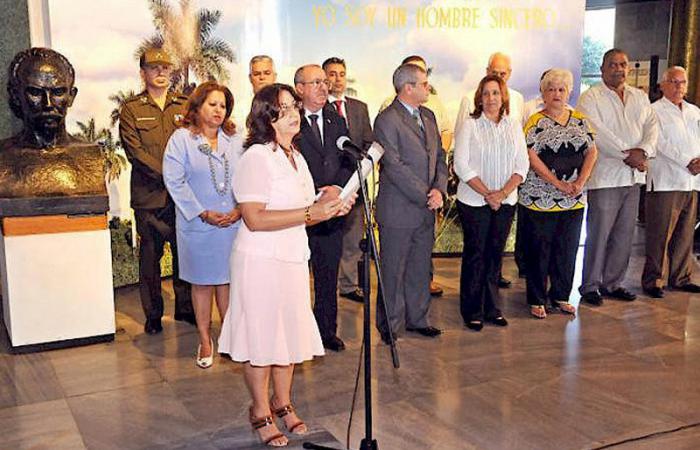
As established in Cuba’s Electoral Law, yesterday, January 6, the 17 members of the country’s National Electoral Commission signed documents confirming their acceptance of the responsibility and received accreditation certificates. The Commission will be responsible for the organization, direction and validation of the April midterm elections, as announced by the Council of State.
In attendance were Ana María Mari Machado and Miriam Brito Sarroca, vice president and secretary of the National Assembly of People’s Power, respectively; and Homero Acosta Álvarez, Council of State secretary, as well as other government officials and representatives of mass organizations.
Alina Balseiro Gutiérrez, Commission president, read the oath with which members swore to fulfill their responsibilities on time, with professionalism and rigor, while maintaining impartiality, transparency, punctuality and honesty in the provision of information and abiding by the ethical principles governing Cuba’s electoral process.
Homero Acosta recalled that, last September, the Council of State had approved a plan to establish provincial work groups to begin the process of organizing the elections and preparing materials. Among the tasks already begun are the training of local commissions and the installation of a new digital system designed by the University of Computer Sciences (UCI), as well as the procurement of required transportation and means of communication.
The Council of State Secretary emphasized that Cuba has a unique electoral system which has emerged from the country’s history, traditions and socio-cultural reality, saying, “We begin with a constitutional principle which affirms the democratic nature of the Cuban state, based on the sovereign power of the people, which is exercised directly or via elected representatives chosen in periodic elections.”
He recalled singular characteristics of Cuba’s system, including the voting age of 16; community organization of polling stations; the absence of political parties making nominations, since candidates are proposed in neighborhood assemblies; and the consequent inexistence of campaign fundraising and politicking.
To be elected in April are delegates to municipal assemblies of People’s Power, who will in turn choose presidents and vice presidents, working commissions and members of neighborhood level People’s Councils, to govern for a period of two and a half years.
Rubén Pérez Rodríguez and Tomás Amarán Díaz were respectively designated vice president and secretary of the National Electoral Commission.















